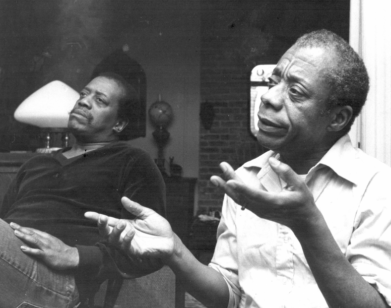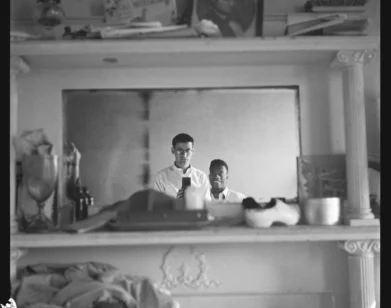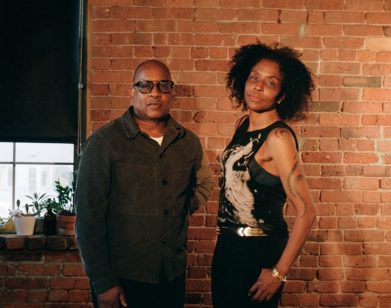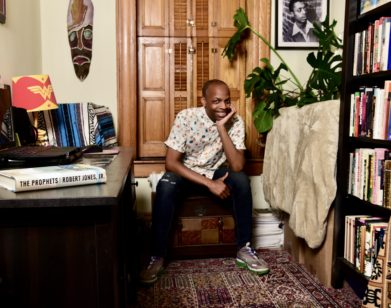ASK A SANE PERSON
Kevin Young on the Righteousness of Voting Rights
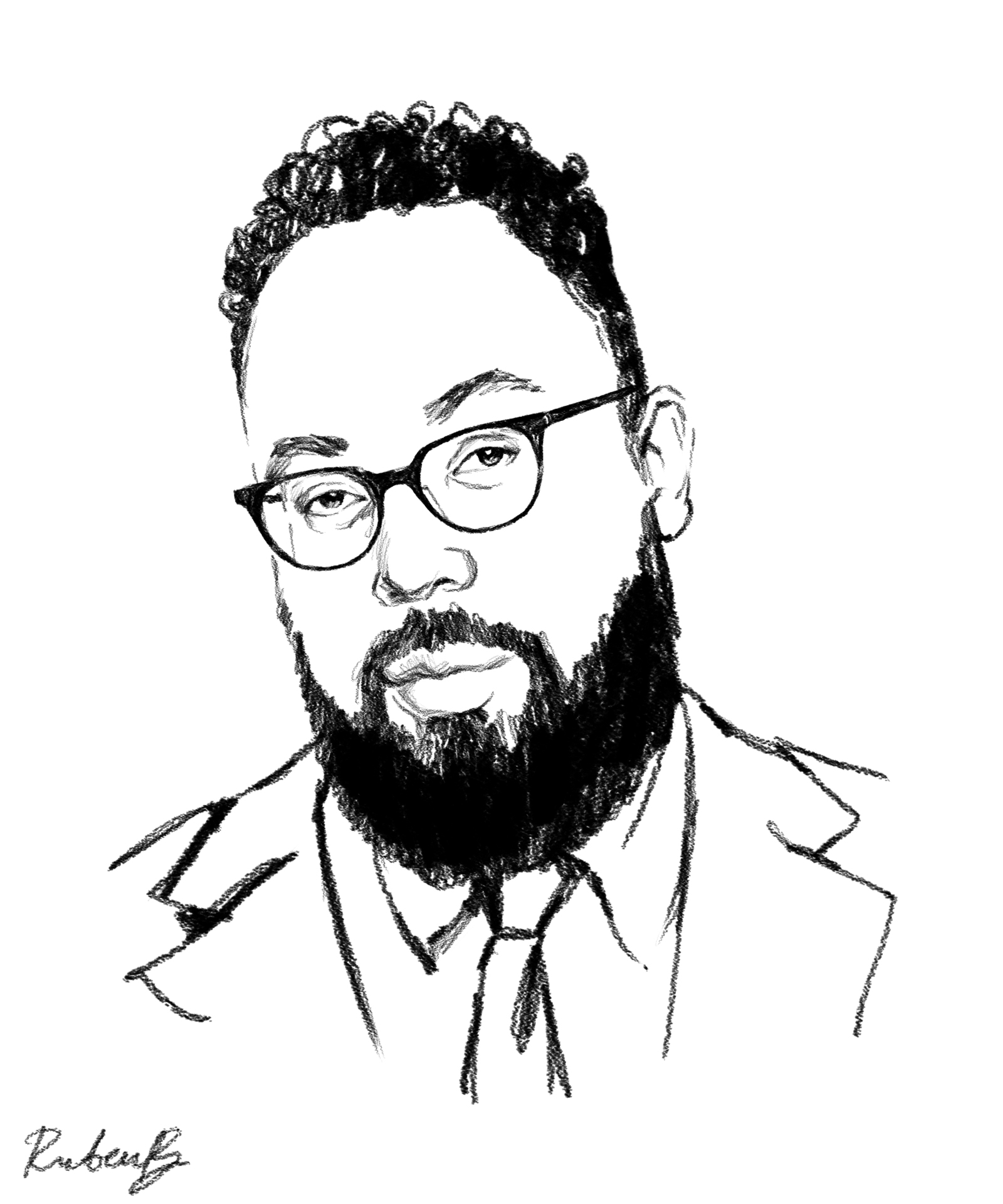
Kevin Young has certainly been a busy poet these past few years. Not only is he the poetry editor of The New Yorker, but he also serves as the Director of the Schomburg Center for Research in Black Culture at the New York Public Library. On top of that, he is writing his own poetry collections, editing others, and tackling fascinating explorations into the uncharted caverns of American history (like his brilliant 2017 study on the American art of the flim-flam, Bunk: The Rise of Hoaxes, Humbug, Plagiarists, Phonies, Post-Facts, and Fake News). This month comes the release of a landmark collection that Young has edited, African American Poetry: 250 Years of Struggle & Song (Library of America). And if that weren’t enough, Young was just named the next director of the Smithsonian National Museum of African American History and Culture. He starts his new gig in January, so we were lucky to get these questions to him between—among?—his many careers.
———
INTERVIEW: Where are you and how long have you been isolating?
KEVIN YOUNG: I’m in Harlem as I type. Being close to a few parks has been quite healing.
INTERVIEW: What has this pandemic confirmed or altered about your view of society?
YOUNG: So many things. I think it reminds me that people are basically good, and trying their best. Being in New York City in the spring, people really were isolating and hoping to “flatten the curve.” It’s a shame that New York’s quarantine was seen as an aberration instead of the future facing us all. I also know how hard it is to change, and to remember why one is doing something that has a long-term benefit that isn’t immediately obvious.
INTERVIEW: What is the worst-case scenario for the future?
YOUNG: That we don’t recover from either of these pandemics—Covid or racism.
INTERVIEW: What good can come out of this lockdown? Are there any reasons to hope?
YOUNG: Well, I know that I, like a lot of other people, returned to cooking at home—and I think many of us have revisited our original foodways, which in my case, means Black Southern food. I also more regularly hit the farmers market now that they’ve opened up in the city again; knowing one’s farmer is a good thing. My grandparents both farmed and raised livestock in Louisiana—indeed, much of my family still does—so I appreciate the knowledge and care that is involved. And fresh veggies and greens—which are a big part of Southern cuisine, folks forget—taste delicious.
INTERVIEW: What has been your daily routine during this time?
YOUNG: Routine? Besides frequent sleeplessness, it’s hard to say. The fall has gotten infinitely busier so I’m glad I started drinking coffee in the spring after never drinking it before.
INTERVIEW: Describe the current state of your hair?
YOUNG: Not bad! The city has safely opened barbershops, and I’ve been to mine (safely and masked) a couple times. I was nervous at first, but they do well with all the precautions. There were six months, though, when I got pretty good with clippers.
INTERVIEW: On a scale of 1 to 10, what is your level of panic about the current state of the world?
YOUNG: 5.5.
INTERVIEW: Do you think there is hope for true racial equality in the United States? What do you think is the first step in that goal?
YOUNG: I’d like to think understanding is the first step, but there’s a growing impatience I see and feel about some people needing to realize or recognize Black humanity. It’s always been so. I do think reading and exploring are really important—and I’d be remiss if I didn’t say the National Museum of African American History and Culture has been doing a tremendous job of telling the important story of Black culture and the long Freedom Struggle we still find ourselves in.
INTERVIEW: Do you think protests are effective tools for changing the system? How does it make a difference in the long term?
YOUNG: Emerson said civil disobedience is not a right, but a duty.
INTERVIEW: Which young leaders of the moment inspire you?
YOUNG: I’m a big believer in the grassroots nature of movements, and sometimes we think of individuals too much at the expense of that. I learned this from archives, too—some of the most exciting archives are the everyday ones, ones that make their way to the Schomburg Center’s holdings or are on display in the NMAAHC. It is the everyday that is extraordinary.
INTERVIEW: What’s the next step after protests in the streets? Where does the righteous rage go?
YOUNG: Voting and voting rights are righteous.
INTERVIEW: What thinker have you taken comfort in of late and why?
YOUNG: Audre Lorde is always brilliant, June Jordan always fierce, Fred Hampton always inspiring, and James Baldwin always right.
INTERVIEW: If 2020 were a song, which song would it be?
YOUNG: “Sitting in Limbo” by Jimmy Cliff. It kicked off the first “Quarantine Mix” I made in the spring. I’m up to eight mixes now.
INTERVIEW: Where did we go wrong? Like, what was the exact moment?
YOUNG: You mean, like leaving the gold standard? Or when they canceled the TV show Roc, even though it was popular, just ’cause they wanted different demographics? Somewhere in there.
INTERVIEW: Which (admittedly totally unqualified) celebrity would you trust with the planet’s future?
YOUNG: I’m afraid most of them are dead already. Among them, the recent loss of Chadwick Boseman was a real blow. He taught young people at the Schomburg Center for years before he made his remarkable run in Hollywood, and was really inspiring.
INTERVIEW: If you could stop time at one particular moment in your life, which moment would it be?
YOUNG: I think there are moments to return to—it’s lovely to remember how it felt to learn my first book got chosen [for the National Poetry Series] by Lucille Clifton, and I’m happy I celebrated properly then. And if you’d have told me I’d be the poetry editor of The New Yorker when I was reading The New Yorker Book of Poems in my Kansas bedroom as a teenager—the very copy is on the shelf next to me as a type—I’d have been blown away. But it’s important not to stay too still.
INTERVIEW: What’s one skill we should all learn while in quarantine?
YOUNG: See cooking, above. My son has become a terrific cook, from breakfast to full dinner, sides and all. He recently made the best version of my Aunt Lydia’s pound cake I’ve ever tasted.
INTERVIEW: What prevents you from giving up hope in the human race?
YOUNG: See my son, above.



